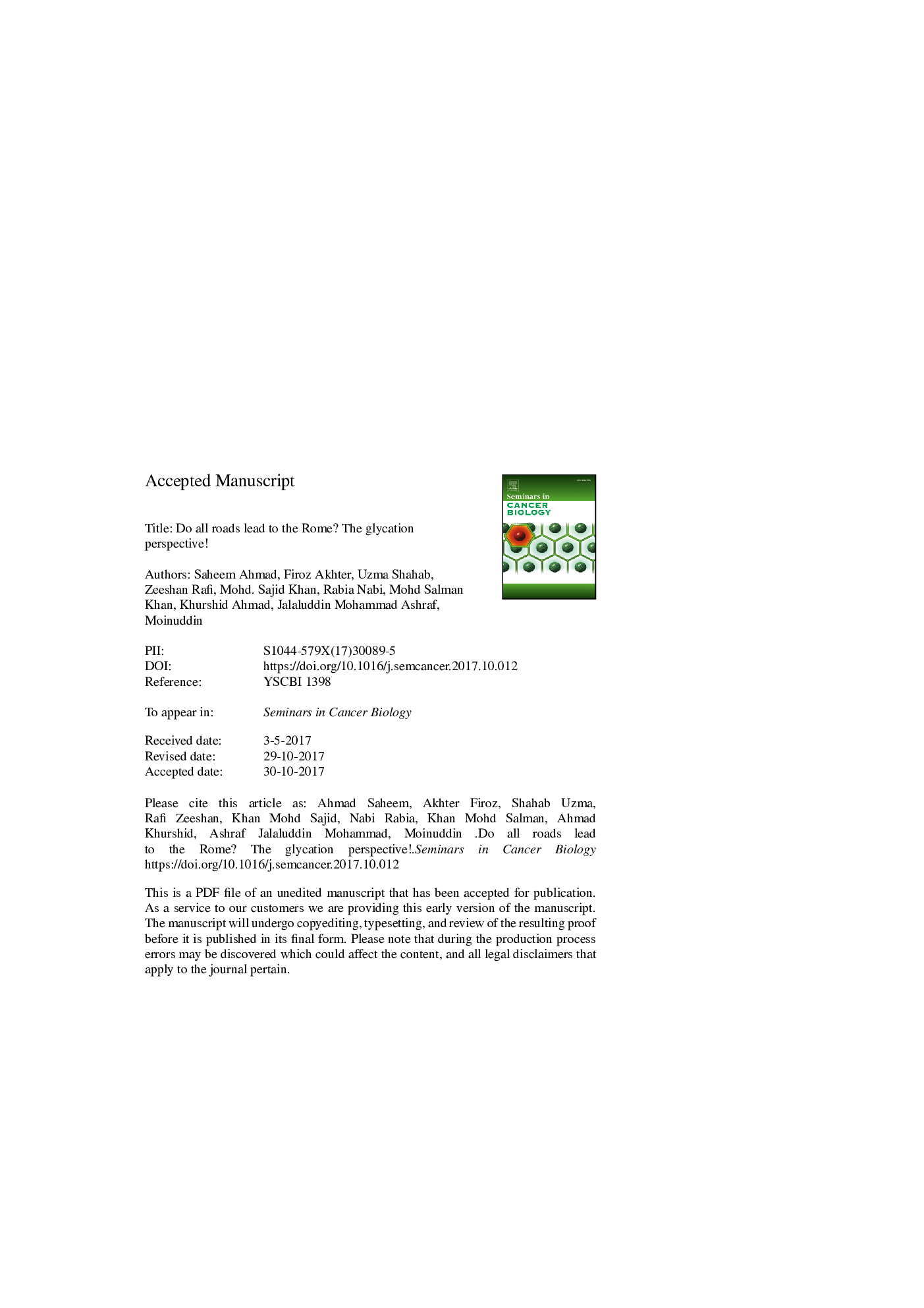| Article ID | Journal | Published Year | Pages | File Type |
|---|---|---|---|---|
| 8361763 | Seminars in Cancer Biology | 2018 | 33 Pages |
Abstract
Glycative stress resulting from advanced glycation end products (AGEs) and reactive dicarbonyls can significantly affect cancer progression. AGEs are fashioned from the multifaceted chemical reaction of reducing sugars with a compound containing an amino group. AGEs bind to and trigger the receptor for AGEs (RAGE) through AGE-RAGE interaction, which is a major modulator of inflammation allied tumors. Dicarbonyls like, GO (glyoxal), MG (methylglyoxal) and 3-DG (3-deoxyglucosone) fashioned throughout lipid peroxidation, glycolysis, and protein degradation are viewed as key precursors of AGEs. These dicarbonyls lead to the carbonyl stress in living organisms, possibly resulting in carbonyl impairment of proteins, carbohydrates, DNA, and lipoproteins. The damage caused by carbonyls results in numerous lesions, some of which are involved in cancer pathogenesis. In this review, the effects of oxidative, carbonyl and glycative stress on cancer initiation and progression are thoroughly discussed, including probable signaling pathways and the effects on tumorigenesis.
Related Topics
Life Sciences
Biochemistry, Genetics and Molecular Biology
Biochemistry
Authors
Saheem Ahmad, Firoz Akhter, Uzma Shahab, Zeeshan Rafi, Mohd. Sajid Khan, Rabia Nabi, Mohd Salman Khan, Khurshid Ahmad, Jalaluddin Mohammad Ashraf, Moinuddin Moinuddin,
